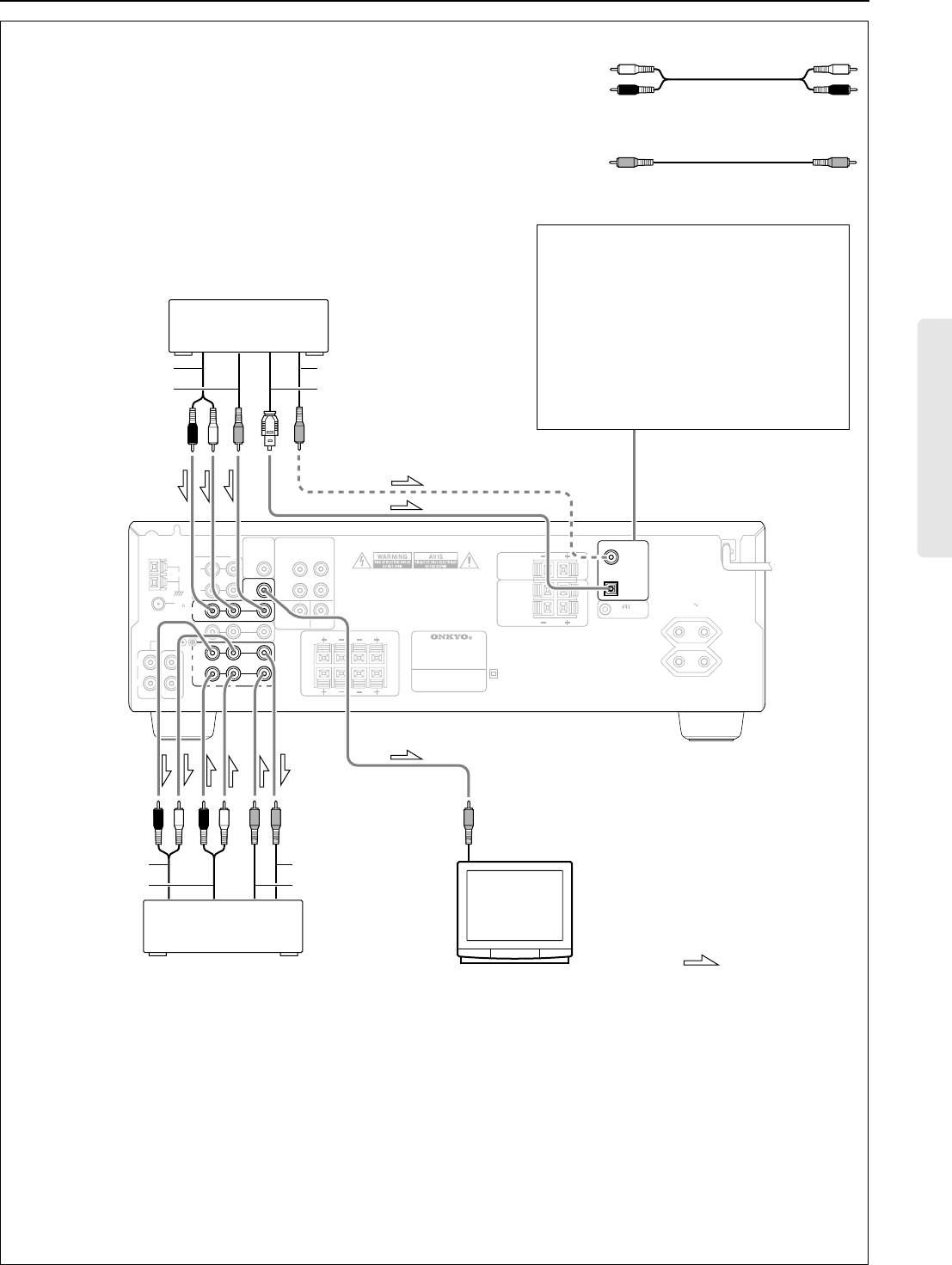
7
FM
75
ANTENNA
CD
AM
GND
PHONO
R
L
R
L
(
PLAY
)
(
REC
)
R
L
V
OUT
I
N
MONI
-
TOR
OUT
SUB
WOOFER
PRE OUT
SURROUND
FRONT
R
L
TAPE
I
N
VIDEO-1
VIDEO-2
I
N
OUT
CENTER
SUB
WOOFER
R
L
R
L
R
CENTER
SPEAKER
R
LL
SURROUND
SPEAKERS
DIGITAL INPUT
REMOTE CONTROL
MODEL NO. TX-DS474
FRONT SPEAKERS
AB
DIGITAL 1
(
OPTICAL
)
DIGITAL 2
(
COAXIAL
)
MULT
I
CHANNEL
I
NPUT
AC OUTLETS
AC 230V 50Hz
SWITCHED
TOTAL 100W MAX.
DVD
I
N
DVD Player
Monitor TV
Video Cassette Recorder
VIDEO IN
AUDIO IN
VIDEO IN
AUDIO OUT
VIDEO OUT
AUDIO OUTPUT
DIGITAL COAXIAL OUTPUT
VIDEO OUTPUT
DIGITAL OPTICAL OUTPUT
: signal flow
L (Left)
R (Right)
L
R
V (Video) V
Audio connection cable
Video connection cable
Video equipment connections
•
On each pair of input jacks, a red connector (marked R) corresponds to the right
channel, and a white connector (marked L) to the left channel.
•
A yellow connector (marked V) is used for video connection.
•
Please refer to the instruction manual of each component when making any con-
nections.
Notes:
•
When using a playback-only VCR, you need to make only the output connections.
•
This receiver can be used with only a monitor TV equipped with a video input jack.
•
Interference may be caused between the TV and this receiver. If this interference occurs, place the receiver and the TV as far apart
as possible. We do not recommend the use of a common TV/FM antenna (see antenna section).
•
A DVD or other component equipped with a digital output can be connected to this receiver. The digital connection must be used in
conjunction with an analog connection, because if the analog cable is disconnected, the audio output from TAPE OUT and VIDEO-2
will not work.
•
Remove the protective cap attached to the DIGITAL-1 (OPTICAL) jack before making the connection. When this jack is not used,
replace the protective cap.
Digital audio connections
This receiver has a powerful digital signal
processor for use with DVD players, DAT
decks, and CD players. The digital inputs,
DIGITAL-1 and DIGITAL-2, can be assigned
to individual input selector buttons, so when
an input selector button is pressed, the
assigned digital input is used instead of the
corresponding analog input. (See page 17.)


















